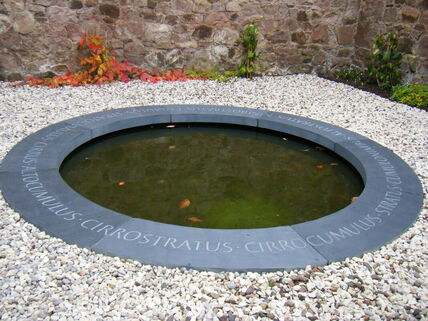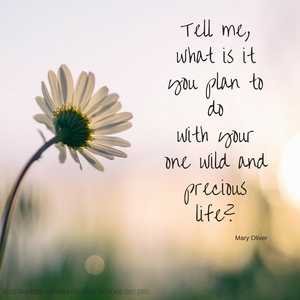
The Abrahamic faiths – Judaism, Christianity, Islam and the Bahai faith believe that the universe was created out of nothing by the direct action of God. Human beings, although part of this creation, are the summit of it with unique abilities and responsibilities to care for the created world. Faced with the awesomeness of nature, its unpredictability, its otherness, the dependence on it for life and nourishment it’s no wonder that the answer to the question of where nature came from or how it all began was found in a supreme being who brought it into existence and sustained it in life. This Being or God was not constrained by the limitations of the created world but lived outside time and space in an eternal heaven or paradise but chose to reveal something of Godself in the natural world, by speaking to people through the Torah in the case of Judaism, the Qur’an in Islam, the person of Jesus in Christianity and Baha’u’llah in the Bahai faith. This was a personal God who wanted a relationship with his creation, especially human beings. It was an image, a hypothesis that gave life and meaning to many over the centuries but it grew out of a stage of history when people believed in a three-fold universe – heaven above, hell below and the earth in the middle. It was a good answer to the mystery of the world at a time when we did not know how the world began.
But we now know how the world began even if the supposed gravitational singularity that started it off is still a mystery. We know about the Big Bang, we know we live in a complex and immense universe that is still expanding, we know there is a direct link between the energy that formed itself into matter and the evolutionary process that brought us human beings from star dust to consciousness. How are we religious people to speak of God in the light of this new universe story? My experience is that sermons still talk of God as a Being separate from the universe in the sense that God loves us, is even besotted with us, God calls us to particular jobs and a way of life, God will answer our prayers, God will reward us in an after life such as heaven. Attending Church services it would seem that we are still living in the three dimensional world that gave birth to the Book of Genesis.
Theology of course over the years has recognised that while God is transcendent, God is also immanent in nature, in history and in the human person who according to the Abrahamic tradition is made in the image and likeness of God. While positive things can be said about God they are inadequate and are in danger of anthropomorphising God – so for example God is not so much loving as love itself, God is not so much wise as Wisdom itself, God is not a Being but Being itself. There is what is called the kataphatic tradition that talks in positive terms about God and the apophatic tradition that recognises the impossibility of knowing God and the only response is silence. This is a bit like the God with attributes and God without attributes found in the Hindu tradition. But, for those people who are not interested in theology and mainly go to Church for their spiritual sustenance, the way God is talked about or prayed to does not reflect what they know of the world in which we live. I’m sure that for many young people and perhaps older people too their rejection of Christianity and God is as much because of cosmology as it is because of theology.
So what do we do with the word god? We can’t ditch it because it’s ingrained in religions , ie apart from Buddhism which doesn’t accept a creator God but a force for life at the heart of the universe. The way of talking about God that I like best in the Christian scriptures is that of Paul where he says that God is the One, the Reality in which we live, move and have our very being. This seems to me to fit the new universe story and expresses well what Teilhard de Chardin calls ‘the organic centre of the evolving universe’. But can we use such an expression as part of our Church services and liturgy? It would take a momentous shift in consciousness and practice. We know that language forms our ways of looking and understanding the world in which we live and to continue with the traditional language is to form people in a mindset that reflects a world that we know does not exist.



 RSS Feed
RSS Feed
